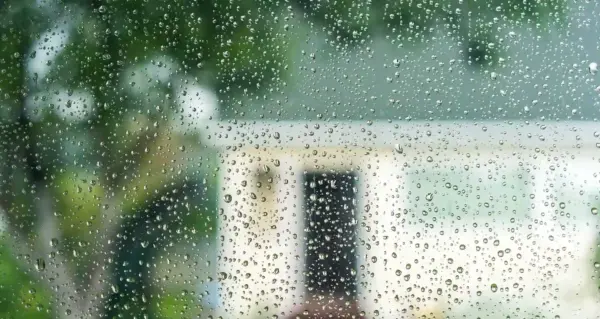When an underwriting team looks at your home insurance application, it uses many different elements to determine your premium.
An experienced insurance broker can help you make the right coverage choices for your home, and introduce you to money saving discounts.
Here are 10 factors that affect the cost of home insurance:
1. Replacement cost
The replacement cost of your home is one of the most commonly misunderstood parts of a home insurance policy. The replacement cost is not based on the current market value of your home or how much your mortgage is for. It is based on how much it would cost to rebuild your home to it’s current state. Insurance companies will rebuild your home up to the value that your policy limit.
Some policies will also include a guaranteed replacement clause, which means even if the cost of rebuilding your home exceeds the replacement cost listed on your policy, the insurance company will fully rebuild your home.
Savings Tip: Always get guaranteed replacement costs including bylaw endorsements when available. This way, you know you’ll be protected, and if the costs of rebuilding your home increase, it’s the insurance company that is responsible for fully rebuilding your home.
2. Your neighborhood
Every neighborhood has its own set of risk factors, and those factors will affect your rates. For example, if your home is located near a large body of water, a flood claim against your policy will be higher than areas without that risk. Homes near airports can cost more to insure because of damage caused by falling debris and even the violent vibrations of the engines.
The crime rate in your neighborhood is going to affect your insurance rates, and so will the crime in the surrounding neighborhoods. Risks such as numerous abandoned properties can also draw crime, which will increase your home insurance costs as well.
Savings Tip: If your area is known for flooding, then be sure to get enough flood insurance to cover any potential damages. Home security systems; surveillance cameras; and exterior lighting triggered by motion detection sensors will keep criminals away and give you peace of mind, and may make you eligible for home insurance discounts.
3. Type of electrical system
It makes sense that homes with older electrical systems cost more to insure, but those are not the only considerations insurance companies make regarding home wiring. If your home has what is known as knob and tube (or K&T) wiring, then your wiring could be over 100 years old. Homes that have older aluminum wiring are considered to be potential fire hazards and are expensive to insure.
A breaker system is considered more reliable than fuses, and an electrical system that is 100-amps or more is considered ideal. When it comes to wiring, your insurance company is just as concerned with your safety as it is with the possibility of damage to your home.
Savings Tip: Before you buy a home, have it inspected by a certified electrician to make sure the wiring is safe. If you own a home that contains an older wiring system, then it’s time to upgrade your wiring. A new electrical system will not only lower your insurance costs, but it will increase the value of your home.
4. Type of plumbing
Running water is an important component of any house, and insurance companies have their preferences when it comes to your home plumbing system. Lead or galvanized steel pipes are much older; not only do they leach dangerous toxins into your water, they tend to crack, especially in our cold Ontario winters.
PVC (and other plastics) and copper pipes are starting to become common in new home construction and in updated residential plumbing systems. These materials tend to be more durable, keep your water clean, and stand up to the weather conditions much better. If your home has plastic or copper plumbing, then you can expect to see lower insurance costs than homes with galvanized steel or lead pipes.
Savings Tip: If you have older plumbing in your home, it’s a good idea to have it replaced. Lead pipes are potential health hazards, and become weaker with time. New plumbing will lower your insurance rates, improve the quality of the water your family uses, and will help increase the overall value of your home.
5. Condition of your roof
Ontario’s weather will put any roof to the test, which is why insurance companies prefer newer roofs over older ones. A roof that is 15 years or older not only runs the risk of needing significant repairs, but it also puts the rest of your home at risk for water damage and wind damage.
The materials used to build your roof can also affect your insurance costs. Metal and clay tile tends to last much longer and require less maintenance than asphalt shingle roofing. But even with these better materials, age is still a factor for your roof. Your insurance company could decide to offer only limited coverage for a roof that is approaching the end of its life cycle.
Savings Tip: Have your roof inspected annually by a certified professional and act on any repair or maintenance advice they make. You should keep the invoices from those annual visits to show your insurance company that you are proactively attending to your roof. Replacing your older roof offers your home better protection, increases your property value, and helps bring down the cost of home insurance.
Get a home insurance quote in minutes.
6. Renovations and betterments
Your home insurance premium is not set in stone once you sign your policy. Improvements made to your home while your insurance is in effect may cause your rates to go up. Remodeling your kitchen or finishing your basement will increase the value of your property, and subsequently will most likely increase your insurance premiums to help cover that additional value.
Savings Tip: As you plan for renovations, you should keep your insurance broker informed of the changes you intend to make. By working closely with your broker, you will be able to understand how your project will affect your premiums, and make certain that your coverage is changed to match your new home value.
7. Past claims
Home insurance is an investment used to protect your property, but it is important to know that insurance companies have limits. If you have a history of claims against your home insurance, it will show up in higher premium costs. Multiple claims could push you out of the regular market as a high risk, and even cause your insurance company to drop you and leave you with no coverage.
Savings Tip: Always weigh the short-term benefit you’d receive from a claim against how much your premium would increase. In cases of significant damage caused by perils such as fire or major storms, it would make sense to file an insurance claim, but some expenses, such as fixing a leaky roof or replacing a damaged window are usually best handled without calling your insurance company.
8. Proximity to fire halls and hydrants
Fire is a threat to any home, and insurance companies take into consideration how close your property is to the nearest fire department and/or fire hydrant. The closer your home is to sources of water that the fire department can use to extinguish a fire, the sooner it can be put out, and the less damage your home will sustain. Being close to a source of water such as a fire hydrant reduces the risk that your home will be a total loss in the event of a fire and your insurance company will reward you by offering you a lower rate than if your home was unprotected.
Proximity to a sources of water is less of a concern for homeowners in urban areas; however, if you own a home outside of the city, it will likely increase your premiums.
Savings Tip: When you are first looking for a home, keep the proximity to water in mind. If you are buying a rural home, installing a water pumping system from the nearest source of water can bring down insurance costs. If there are no hydrants within 300 meters and fire hall beyond 8 kilometers of your home, building a nearby pond can act as an emergency water source, and even add to the value of your property.
9. Pets
Some pets are considered higher risks than others, and dogs are at the top of that with with insurance companies. Exotic pets such as snakes can also have effect on your insurance policy, as homeowners caught with illegal pets could see their policy canceled.
Nearly half of all dog bites occur on the owner’s property, and insurance companies are very careful when it comes to insuring homes that have specific breeds of dogs. It is common for insurance companies to require additional coverage for breeds deemed to be aggressive, but most companies are open to working with dog owners to establish acceptable guidelines.
Savings Tip: Before you buy a dog, discuss the potential insurance implications with your broker. You may be required to sign a waiver that removes dog incidents from your policy, or alternatively, your insurer might offer you additional coverage to help cover your risk of lawsuits or property damage. In some cases, keeping copies of receipts for any obedience classes your dog attends may help your rates with some insurers.
10. Choosing a home insurance policy based on price alone
Price is one of the things that’s on the minds of most customers when they shop for home insurance; nobody wants to pay more than they have to. Shopping online for home insurance will show you estimated prices from different companies, but you are on your own for making sure you are properly covered.
Choosing a home insurance insurance policy solely based on price can leave you unprotected, potentially leaving you with major repair costs.
Savings Tip: Shop for insurance using a broker that has access to many different insurance companies. You give the broker your information once, and they are able to provide you with accurate quotes from the major insurance companies as well as small niche companies that are only available through brokers. Each property’s risks and coverage requirements is unique, so nothing beats speaking with a home insurance broker so your risks can be properly assessed as well as the best rates for your coverage. Be sure to ask your broker about any questions you might have about what’s covered by home insurance in Ontario and how you’re covered if something happens to your belongings; a pipe bursts; or raw sewage backs up into your home. An experienced broker will also be able to find you discounts that offer rewards for having good credit, or being claims free.
Home insurance protects the financial investment you have in your home, and it offers important coverage your family may need in case of an emergency.
Looking for home insurance?
Speak with a Mitch Insurance broker today to get a quote on Ontario home insurance. Learn more >
Call now
1-800-731-2228








I do like that you suggested replacing your old plumbing system in your house if you want to save from your homeowner’s insurance policy and enjoy a quality water. My husband and I are planning to purchase a homeowner’s insurance policy soon. What we want is to get the best deal without affecting the type of coverage that we’d like to have for our house, so I’ll make sure to consider all your tips.
It caught my attention when you said that you can increase your property’s value and bring down the cost of your insurance policy by replacing your roof. This is something that I will make sure to remember because I’m planning to shop for a home insurance policy. What I want is to find the most affordable home insurance plan since I need to consider my monthly budget. We’ll be sure to consider hiring a roofing contractor that can install a new roof for us. Thanks!
The most affordable/cheap insurance is just skipping it all together. I love what you took away that the newer roofs are cheaper to insure, but relating to finding affordable insurance, I would advise you to find the best value for your situation. The cheapest could be the worst coverage with the worst company support and claims while being quite affordable.
Home insurance can be quite tailored to your situation, so take the time to understand it and de-risk your house. Then you can retain some of the risk where appropriate and get great value from the risk you transfer to the insurance company.